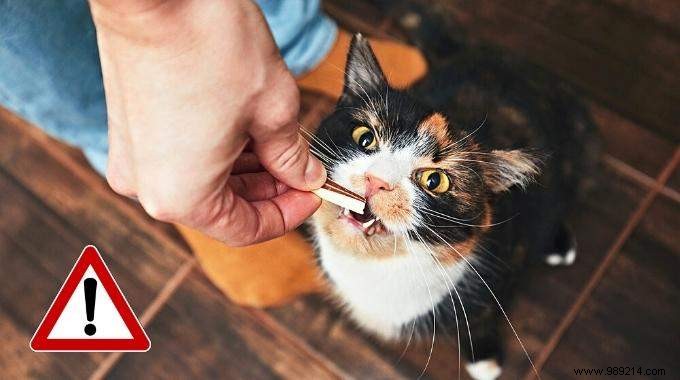
I just adopted a kitten...
And I wondered what foods could be dangerous for him.
Because I wouldn't want to make him sick without doing it on purpose.
That's why I've put together a list of foods that are potentially toxic to cats.
It was my veterinarian who helped me determine all the forbidden foods for the cat. He also explained to me why they are.
Discover 16 things you should avoid feeding your cat . Watch:
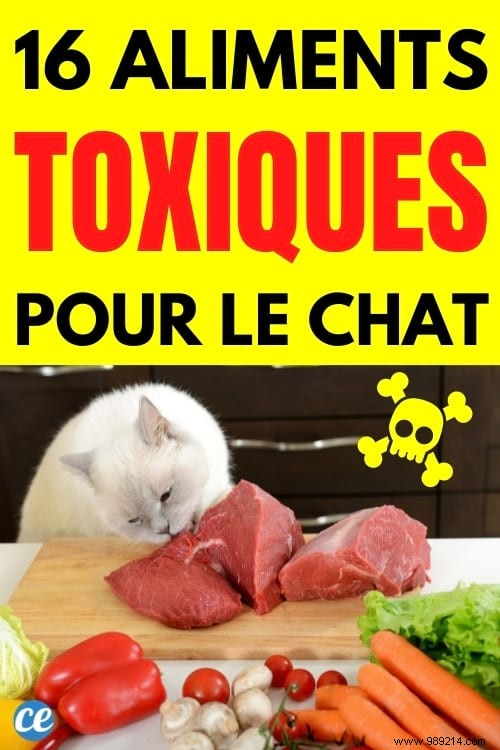
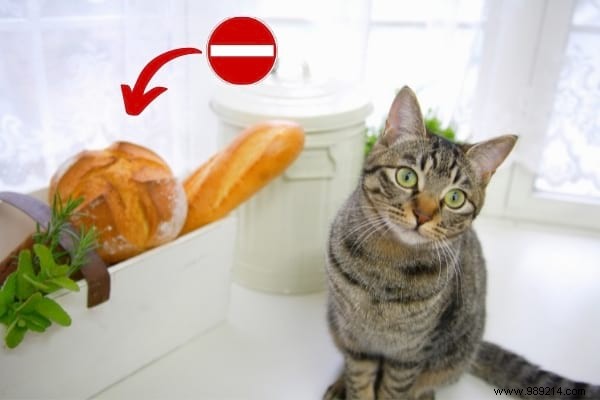
Giving bread to a cat is not advisable mainly because of the yeast.
The ferments can react in the cat's belly causing gas buildup.
Result:swollen stomach, bloating, difficult digestion, stomach aches...
In extreme cases, it can cause an ultra-painful torsion of the intestines.
Do you know the worst? Fermenting yeast also produces alcohol that is harmful to cats.
So you should also avoid any pastry that contains baking powder and that is not cooked enough.
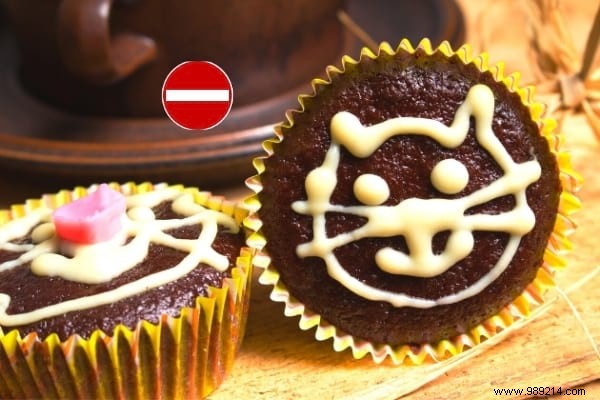
We love chocolate... but for cats it's really toxic.
Why ? Because chocolate contains theobromine, a compound that cats cannot digest.
It causes vomiting, diarrhea , and in extreme cases fatal convulsions.
Chocolate also contains methylxanthines which are dangerous for the cat.
Depending on the chocolates, these elements are more or less present.
Cocoa powder contains the most, and white chocolate contains the least.
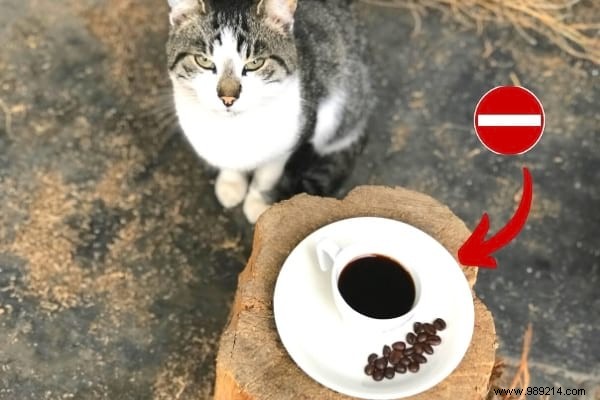
Like chocolate, coffee contains poisonous substances for cats .
Methylxanthines are also part of it.
Caffeine is also toxic.
8 teaspoons are enough to poison a small animal like a cat.
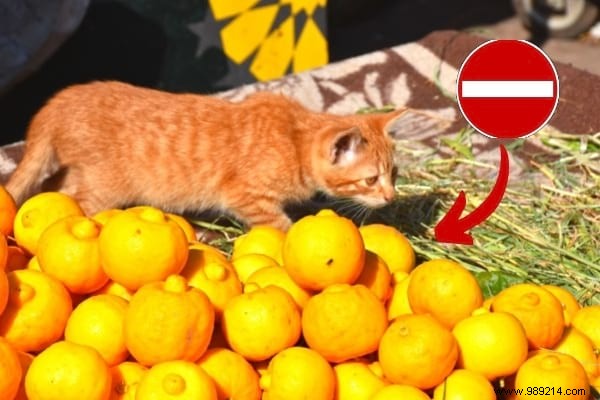
Grapefruit, clementine, lemon, orange contain essential oils and citric acid that are highly toxic to cats .
Keep citrus peels, leaves, stems, flesh or seeds out of cat's reach.
Don't worry, a very small amount will not harm your pet...at worst some vomiting.
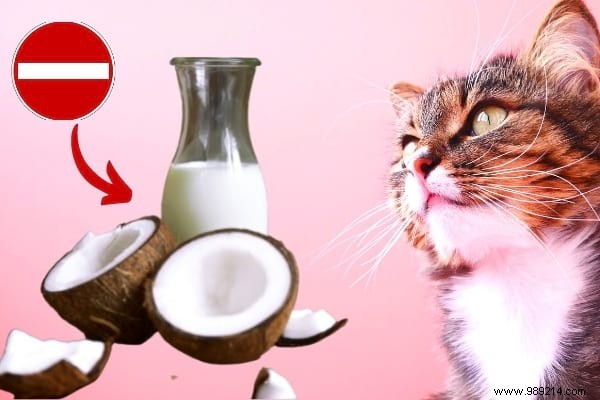
Coconut milk and flesh cause digestive problems in cats if ingested in large quantities.
It's because of their high potassium content that these two products are not recommended for cats.
Why ? Because it acidifies the blood and affects the functioning of the heart.
Once again, everything is in the measure!
A few drops of coconut milk are not going to kill your cat, or even make it very sick.
But avoid giving it in large quantities.

The common idea is that a cat drinks its bowl of milk every day.
Well, it's to be avoided.
Indeed, many cats do not tolerate lactose well or not at all.
And it leads to significant digestive problems .
By extension, we also avoid yogurts and cheeses to avoid diarrhea.
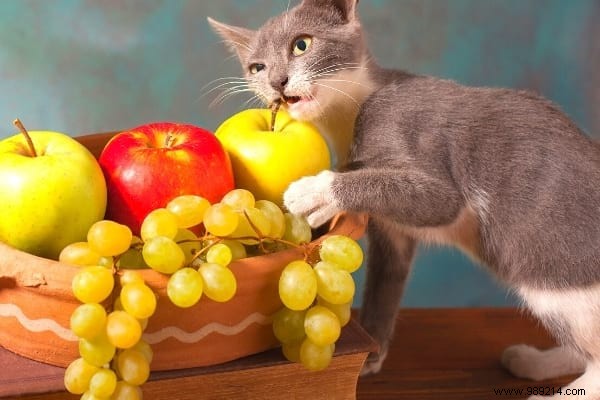
Grapes cause kidney problems in the long run.
The positive point is that cats don't like grapes that much.
They therefore do not consume large quantities!
The risks are therefore limited.
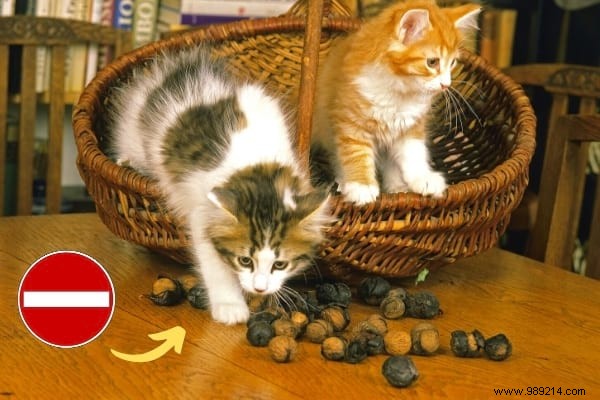
Because they are rich in phosphorus, walnuts and hazelnuts are not recommended for felines.
The other reason is the fat that nuts contain.
It causes digestive disorders and sometimes even pancreatitis.
The macadamia nut seems to be the most harmful because of the increased heart rate it causes.
Nutmeg, on the other hand, causes hallucinations when consumed in large quantities.
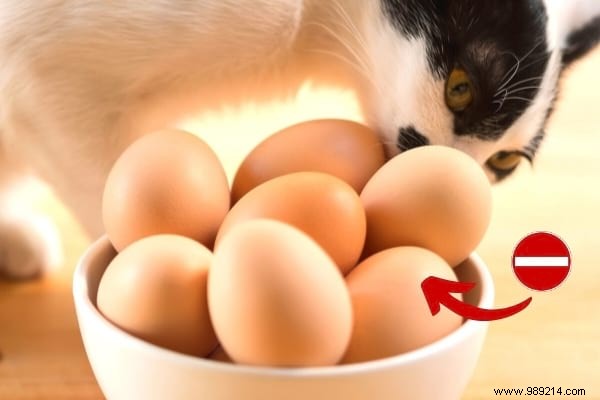
Giving a raw egg is a good idea if you know where it comes from.
If not, skip the eggs, as they may be contaminated with Salmonella.
These bacteria cause a serious infection with vomiting, diarrhea and fever.
Another problem with a diet high in raw eggs is not their avidin content.
This enzyme prevents the proper absorption of vitamins for skin and hair.
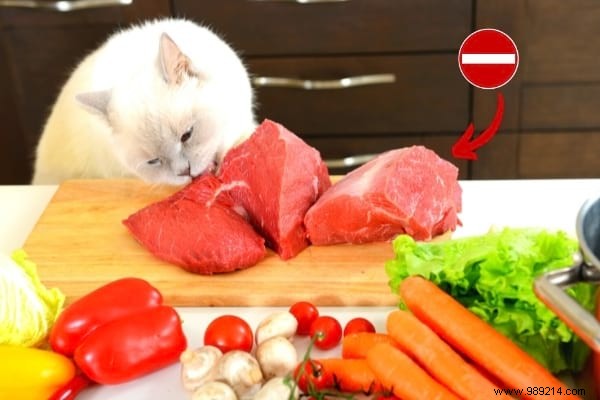
As with eggs, be sure where the meat comes from.
Indeed, it can contain bacteria such as salmonella or Escherichia coli.
These bacteria disrupt the cat's digestion, causing diarrhea, vomiting and fevers.
It's a bit like food poisoning.
Never give raw pork, it is the one with the highest risk of contamination.
It may also contain a virus called "Aujesky" causing serious neurological problems resembling the symptoms of rabies.
The same goes for raw fish.

As for us, too salty food is bad for health.
In the short term, a real excess of salt causes convulsions, tremors, vomiting and this can lead to cardiac arrest.
But the worst is the result of eating too much salt in the long run.
The kidneys are affected, but also the cardiovascular system.
In short, it's taking the risk of shortening the life of your pet...and making it suffer.
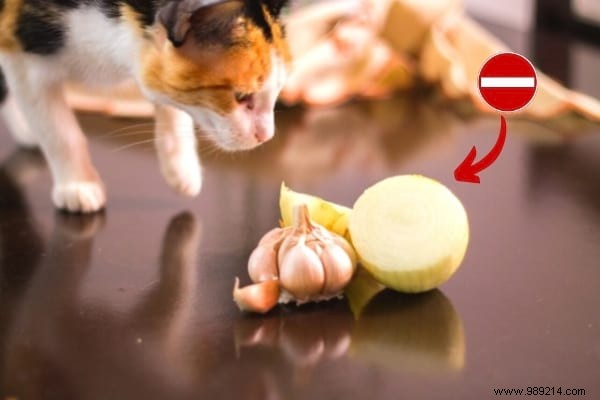
Onion, green onion, garlic, shallot and chives are not recommended for cats.
Especially if they are raw!
They would damage red blood cells .
By extension, we also avoid raw leeks, because they are from the same family as onions.
On the other hand, cooked or boiled leeks are not harmful.
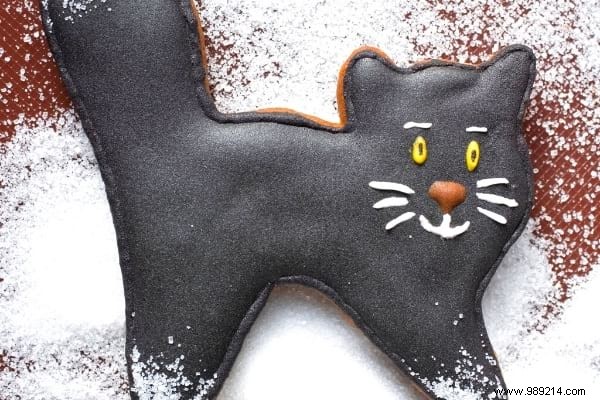
Xylitol, like most sweeteners, should be avoided for animals.
It is found in sweets, some cakes or yogurts ...
Again, taking a small amount alone is not harmful.
At worst, the cat will throw up what it ate.
Only if he eats it in large quantities and repeatedly can it cause lethargy or liver problems.
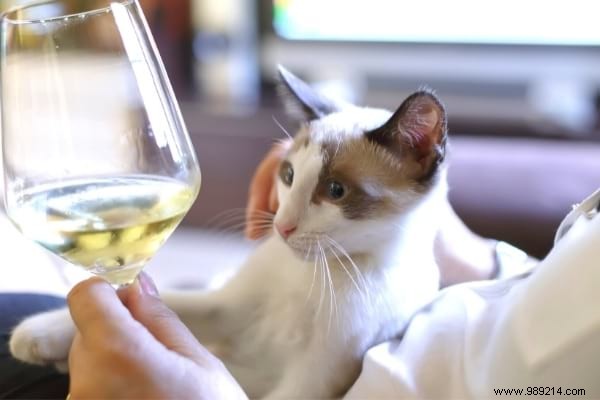
Avocado contains persin.
And that can be bad for your cat's heart and lungs.
And since avocado is very fatty, it can also be a problem for the pancreas.

It's a funny idea to give alcohol to an animal...but obviously, it's to be avoided.
Alcohol is toxic to cats and can cause coma and even death, even in small doses.
In any case, alcohol is harmful to the feline's heart and brain.
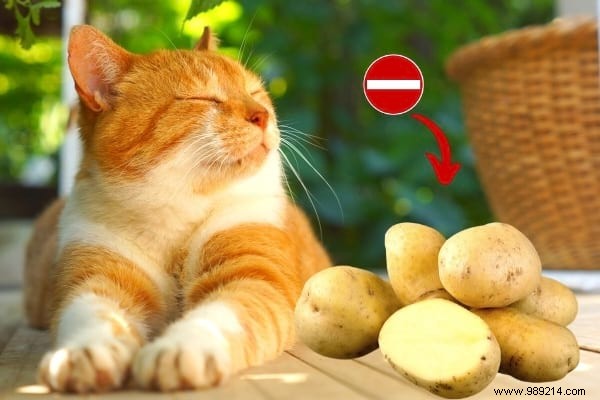
As for dogs, raw potatoes are toxic to cats.
It's because of the calcium oxalate that poisons the kidneys and urinary tract of the cat.
So even if you eat it often, don't give it to your cat!
First of all, don't panic!
If your cat has eaten a small amount of any of these foods, he's probably not at risk...at worst, a mild liver attack.
But if you have any doubts, know that there is a poison control center for animals.
They can be reached on 02 40 68 77 40 to ask a question.
Do not wait to see the first symptoms, it is better to act as soon as possible.
Also contact your usual veterinarian . Since he knows your animal well, he will be able to tell you what to do.
A word of advice:never leave food lying around on your table .
It limits the risks! Because we must not forget that the cat is curious and greedy, he will want to taste everything.